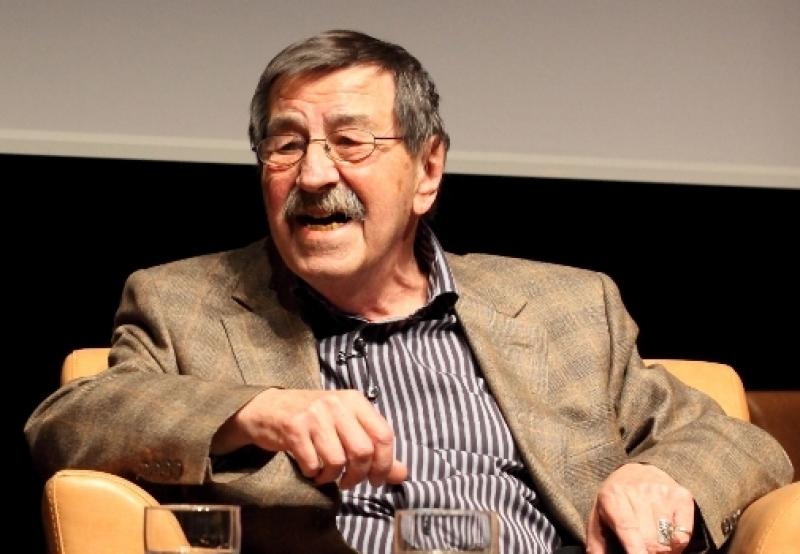theartsdesk Q&A: Günter Grass | reviews, news & interviews
theartsdesk Q&A: Günter Grass
theartsdesk Q&A: Günter Grass
An unplanned encounter with the great German writer, who died on Monday

The Nobel prize-winning writer, playwright and artist Günter Grass was arguably the best-known German-language author of the second half of the 20th century. Kate Connolly met him in May 2010 in Istanbul where, after attending a series of literary events, Grass was forced to stay on for some days as volcanic ash closed European airports.
Born in 1927 in the port city of Danzig in what is now Gdansk in Poland, he was among the hundreds of thousands of ethnic German refugees who settled in West Germany in 1945. His literary career started with his debut novel, The Tin Drum (1959), which remains his most famous work. It formed the first part of his Danzig Trilogy and is steeped in European magic realism. The book was adapted for the screen by Volker Schlöndorff in 1979. Like many of his novels it deals with the rise of Nazism and the experience of war.
The Nobel prize-winning writer, playwright and artist Günter Grass was arguably the best-known German-language author of the second half of the 20th century. Kate Connolly met him in May 2010 in Istanbul where, after attending a series of literary events, Grass was forced to stay on for some days as volcanic ash closed European airports.
Born in 1927 in the port city of Danzig in what is now Gdansk in Poland, he was among the hundreds of thousands of ethnic German refugees who settled in West Germany in 1945. His literary career started with his debut novel, The Tin Drum (1959), which remains his most famous work. It formed the first part of his Danzig Trilogy and is steeped in European magic realism. The book was adapted for the screen by Volker Schlöndorff in 1979. Like many of his novels it deals with the rise of Nazism and the experience of war.
Share this article
The future of Arts Journalism
You can stop theartsdesk.com closing!
We urgently need financing to survive. Our fundraising drive has thus far raised £49,000 but we need to reach £100,000 or we will be forced to close. Please contribute here: https://gofund.me/c3f6033d
And if you can forward this information to anyone who might assist, we’d be grateful.

Subscribe to theartsdesk.com
Thank you for continuing to read our work on theartsdesk.com. For unlimited access to every article in its entirety, including our archive of more than 15,000 pieces, we're asking for £5 per month or £40 per year. We feel it's a very good deal, and hope you do too.
To take a subscription now simply click here.
And if you're looking for that extra gift for a friend or family member, why not treat them to a theartsdesk.com gift subscription?

Add comment